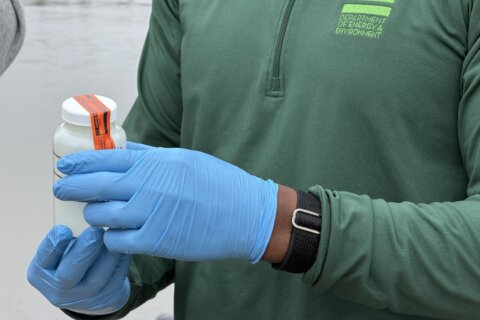The D.C. police announced Tuesday that they’re changing the way they’ll deal with suspects who are children.
“It used to be the default to handcuff a juvenile,” Police Chief Peter Newsham told the D.C. Council on Tuesday morning. “Now, the default will be to not place handcuffs on juveniles aged 12 and under unless the juvenile presents a danger to themselves or others.”
Under an initiative called Interacting With Juveniles, the police will also use discretion in handcuffing kids ages 13 to 17, depending on what they’re accused of doing, the department said in a statement.
Instead of immediately arresting kids on the scene of an incident, officers will gather information and release the child to a parent. Then, after talking with the Office of Attorney General, they’ll apply for an arrest warrant. That’s a policy that’s already been in place since last August when it comes to school-related incidents, they said.
Officers will have a 24-hour hotline to talk with someone from the D.C. attorney general’s office about issues regarding young suspects.
More children will be eligible for diversion, which a police spokeswoman told WTOP in an email was “an alternative to arrest and prosecution.” It can be used to release children to their parents or guardians after accusations of minor offenses if they haven’t been arrested more than twice in the previous two years, haven’t been arrested more than once for the same offense in two years or not prosecuted for a delinquent act.
Newsham said after the Council hearing that the new policy will be “one of the best in the country,” and one that gets to the real goal of policing.
“One of the most important things we do is build trust with our community,” he said, “and we don’t want to do anything that negatively impacts that.” He told Council member Trayon White during the hearing, “The mere image of having a child in handcuffs can paint the police force in a bad light.”
The change comes after several troubling interactions between children and the D.C. police last year, including an incident in which a 10-year-old robbery suspect was handcuffed and a 9-year-old who was never charged with a crime was handcuffed after an officer told him to stop leaning on a car.
That incident led to a collaboration with the attorney general’s office on changing the policy on handcuffing children.
Newsham said the change in arrest policy, including involving parents in the release of a child, will “be a lot more difficult” logistically, “but it’s very important.”
“To ensure that our kids are given every opportunity, to ensure that they are not introduced unnecessarily to the criminal justice system, will be worth the extra effort,” he added.
Council Chairman Phil Mendelson praised the move after the hearing. He said the District has always been “a leader with how it approaches criminal justice, and recognizing that criminal justice is not simply about locking people up, but about what are the best outcomes.”
He said statistics show that when juveniles are imprisoned, “the chances are extremely high that they are committed to a lifetime or imprisonment and crime. So diversion is important, and looking at the least restrictive steps. And that’s what the chief has outlined.”
“These changes reflect a comprehensive review of proven practices which show that responding to the unique needs of children improves public safety,” Attorney General Karl Racine said in the statement. “When police can use interactions with young people as an opportunity to establish trust and help kids stay on the right path, everyone benefits.”
Officers will begin training on the new guidelines later this week.
WTOP’s Neal Augenstein and Megan Cloherty contributed to this report.








